Abarth 500 595 695 vs Mercedes Citan – Differences & prices compared
Two cars, one duel: Abarth 500 595 695 meets Mercedes Citan.
Which one wins in performance, efficiency and value for money? Find out now!
Costs and Efficiency:
Price and efficiency are often the first things buyers look at. Here it becomes clear which model has the long-term edge – whether at the pump, the plug, or in purchase price.
Mercedes Citan has a significantly advantage in terms of price – it starts at 22400 £, while the Abarth 500 595 695 costs 32600 £. That’s a price difference of around 10119 £.
In terms of energy consumption, the advantage goes to the Abarth 500 595 695: with 17.10 kWh per 100 km, it’s a bit more efficient than the Mercedes Citan with 19.30 kWh. That’s a difference of about 2.20 kWh.
As for range, the Mercedes Citan performs hardly perceptible better – achieving up to 280 km, about 15 km more than the Abarth 500 595 695.
Engine and Performance:
Power, torque and acceleration say a lot about how a car feels on the road. This is where you see which model delivers more driving dynamics.
When it comes to engine power, the Abarth 500 595 695 has a slightly edge – offering 155 HP compared to 131 HP. That’s roughly 24 HP more horsepower.
In acceleration from 0 to 100 km/h, the Abarth 500 595 695 is clearly quicker – completing the sprint in 7 s, while the Mercedes Citan takes 13 s. That’s about 6 s faster.
In terms of top speed, the Mercedes Citan performs a bit better – reaching 183 km/h, while the Abarth 500 595 695 tops out at 155 km/h. The difference is around 28 km/h.
There’s also a difference in torque: Mercedes Citan pulls slightly stronger with 270 Nm compared to 235 Nm. That’s about 35 Nm difference.
Space and Everyday Use:
Cabin size, boot volume and payload all play a role in everyday practicality. Here, comfort and flexibility make the difference.
Seats: Mercedes Citan offers to a small extent more seating capacity – 5 vs 4.
In curb weight, Abarth 500 595 695 is to a small extent lighter – 1410 kg compared to 1556 kg. The difference is around 146 kg.
In terms of boot space, the Mercedes Citan offers clearly more room – 551 L compared to 185 L. That’s a difference of about 366 L.
In maximum load capacity, the Mercedes Citan performs clearly better – up to 3660 L, which is about 3110 L more than the Abarth 500 595 695.
When it comes to payload, Mercedes Citan decisively takes the win – 644 kg compared to 385 kg. That’s a difference of about 259 kg.
Who wins the race?
The Mercedes Citan proves to be wins the duel decisively and therefore becomes our DriveDuel Champion!
Mercedes Citan is the better all-rounder in this comparison.

Mercedes Citan
Abarth 500 595 695
The Abarth 500, particularly in its 595 and 695 renditions, captures the spirit of Italian motoring with its compact yet aggressive design. Known for its lively performance and distinctive styling, this little powerhouse is a joy to drive, offering an engaging experience that appeals to enthusiasts. With its rich motorsport heritage, the Abarth 500 embodies the essence of fun and excitement on both the streets and the race track.
details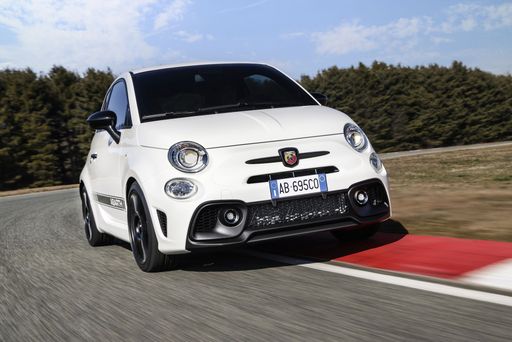 @ Abarth / Stellantis Media
@ Abarth / Stellantis Media
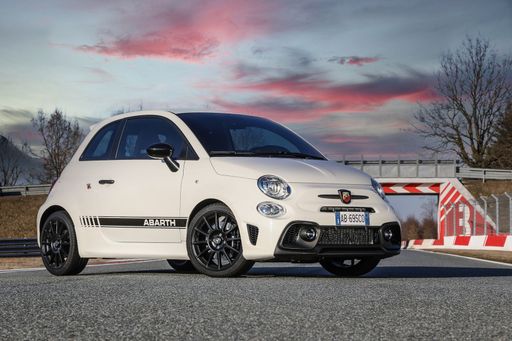 @ Abarth / Stellantis Media
@ Abarth / Stellantis Media
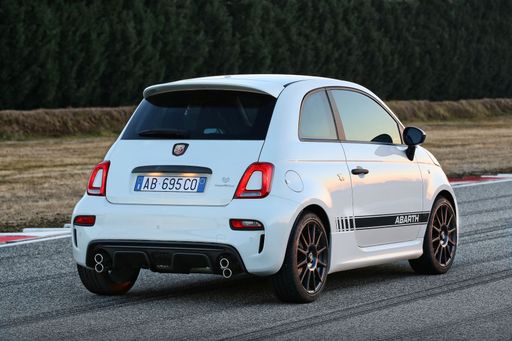 @ Abarth / Stellantis Media
@ Abarth / Stellantis Media
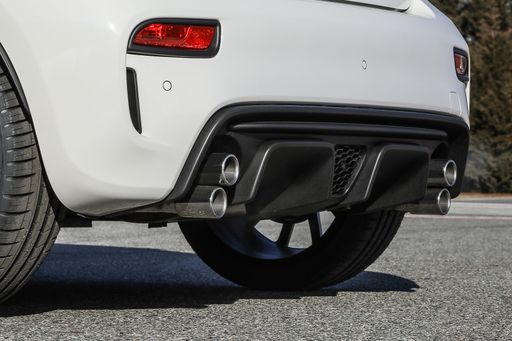 @ Abarth / Stellantis Media
@ Abarth / Stellantis Media
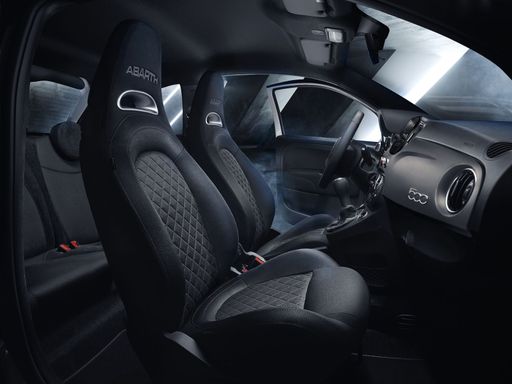 @ Abarth / Stellantis Media
@ Abarth / Stellantis Media
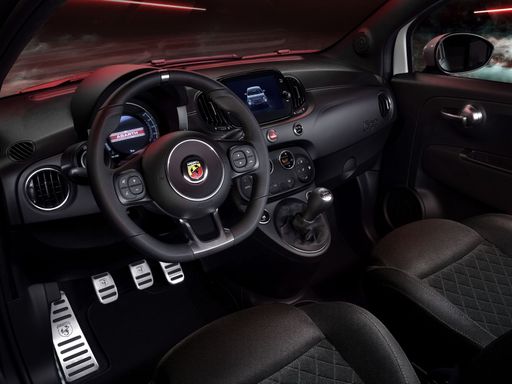 @ Abarth / Stellantis Media
@ Abarth / Stellantis Media
Mercedes Citan
The Mercedes-Benz Citan High Roof Van is a versatile option in the compact van segment, offering a perfect blend of practicality and style. Its sleek design combined with the brand's hallmark attention to detail ensures that it stands out on city streets and motorways alike. Inside, the spacious cabin provides ample room for passengers or cargo, making it an ideal choice for both urban professionals and families seeking flexibility.
details
 @ Abarth / Stellantis Media
@ Abarth / Stellantis Media
|
|
|
|
|
Costs and Consumption |
|
|---|---|
|
Price
32600 - 39400 £
|
Price
22400 - 30100 £
|
|
Consumption L/100km
-
|
Consumption L/100km
5.2 - 7.4 L
|
|
Consumption kWh/100km
17.1 - 18.8 kWh
|
Consumption kWh/100km
19.3 - 20.7 kWh
|
|
Electric Range
242 - 265 km
|
Electric Range
265 - 280 km
|
|
Battery Capacity
37.80 kWh
|
Battery Capacity
45 kWh
|
|
co2
0 g/km
|
co2
0 - 167 g/km
|
|
Fuel tank capacity
-
|
Fuel tank capacity
54 L
|
Dimensions and Body |
|
|---|---|
|
Body Type
Hatchback
|
Body Type
High Roof Estate
|
|
Seats
4
|
Seats
5
|
|
Doors
3
|
Doors
5
|
|
Curb weight
1410 - 1435 kg
|
Curb weight
1556 - 2010 kg
|
|
Trunk capacity
185 L
|
Trunk capacity
0 - 551 L
|
|
Length
3673 mm
|
Length
4498 - 4922 mm
|
|
Width
1682 mm
|
Width
1859 mm
|
|
Height
1518 mm
|
Height
1811 - 1830 mm
|
|
Max trunk capacity
550 L
|
Max trunk capacity
1979 - 3660 L
|
|
Payload
370 - 385 kg
|
Payload
485 - 644 kg
|
Engine and Performance |
|
|---|---|
|
Engine Type
Electric
|
Engine Type
Petrol, Diesel, Electric
|
|
Transmission
Automatic
|
Transmission
Manuel, Automatic
|
|
Transmission Detail
-
|
Transmission Detail
Manual Gearbox, Dual-Clutch Automatic, Reduction Gearbox
|
|
Drive Type
Front-Wheel Drive
|
Drive Type
Front-Wheel Drive
|
|
Power HP
155 HP
|
Power HP
95 - 131 HP
|
|
Acceleration 0-100km/h
7 s
|
Acceleration 0-100km/h
13 - 15.5 s
|
|
Max Speed
155 km/h
|
Max Speed
132 - 183 km/h
|
|
Torque
235 Nm
|
Torque
200 - 270 Nm
|
|
Number of Cylinders
-
|
Number of Cylinders
4
|
|
Power kW
114 kW
|
Power kW
70 - 96 kW
|
|
Engine capacity
-
|
Engine capacity
1332 - 1461 cm3
|
General |
|
|---|---|
|
Model Year
2023
|
Model Year
2021 - 2024
|
|
CO2 Efficiency Class
A
|
CO2 Efficiency Class
F, E, A
|
|
Brand
Abarth
|
Brand
Mercedes-Benz
|
Is the Abarth 500 595 695 offered with different drivetrains?
The Abarth 500 595 695 is offered with Front-Wheel Drive.
The prices and data displayed are estimates based on German list prices and may vary by country. This information is not legally binding.
